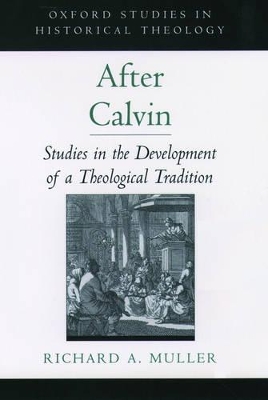Oxford Studies in Historical Theology
2 total works
This is a sequel to Richard Muller's The Unaccommodated Calvin (OUP 2000). In the previous book, Muller attempted to situate Calvin's theological work in its historical context and to strip away various twentieth-century theological grids that have clouded our perceptions of the work of the Reformer. In the present book, Muller carries this approach forward, with the goal of overcoming a series of nineteenth- and twentieth-century theological frameworks
characteristic of much of the scholarship on Reformed orthodoxy, or what might be called 'Calvinism after Calvin'.
characteristic of much of the scholarship on Reformed orthodoxy, or what might be called 'Calvinism after Calvin'.
This title looks at Calvin in his 16th-century context, dealing with the differences of his thought and his predecessors, contemporaries, and successors. The author shows that Calvin's theology evidences the impact of humanist philology, patristics, rhetoric and that of medieval scholastic thought.

